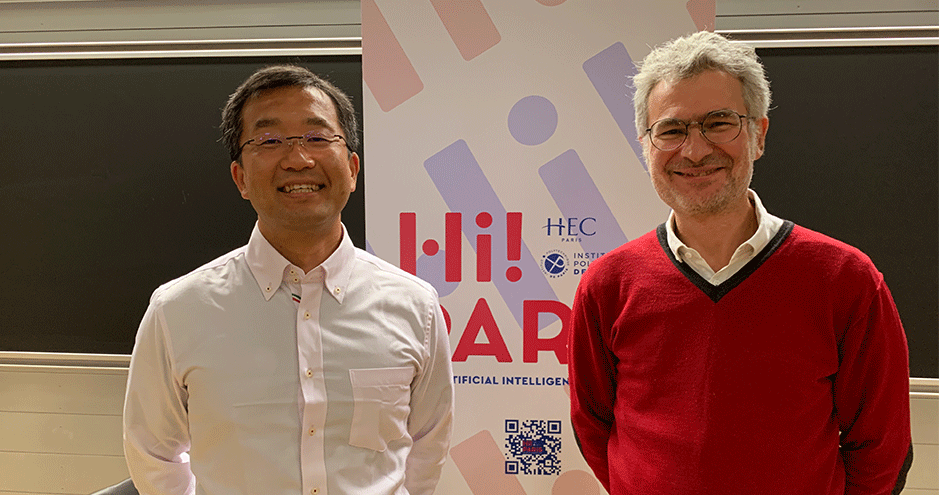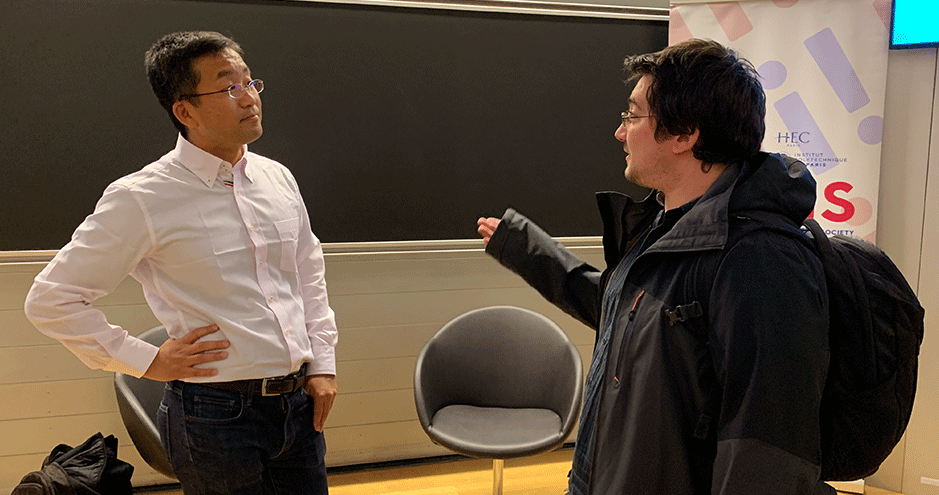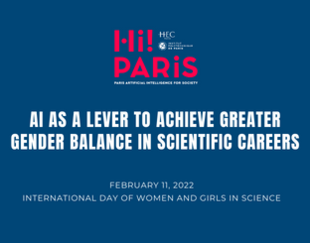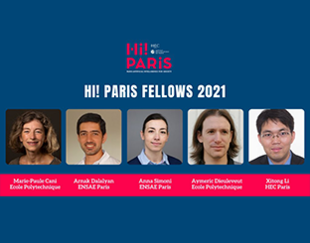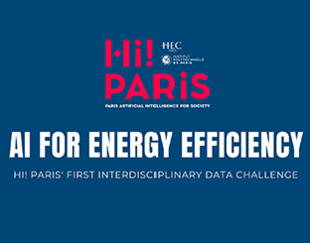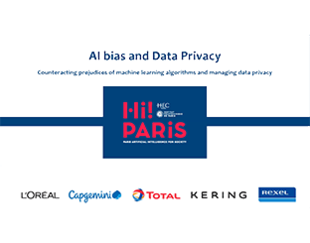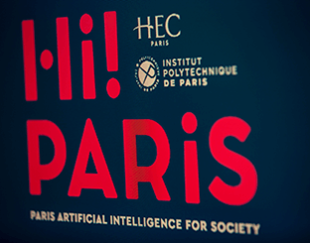Bridging the Gap Between Machine and Human Learning
The Hi! PARIS Center kicked off its third academic year on September 26 by inviting renowned scientific researcher Masashi Sugiyama to share his latest work on robust machine learning. The University of Tokyo academic is one of 10 top scientists on the Hi! PARIS International Scientific Advisory Board which advises the Center’s governance committee and executive board.
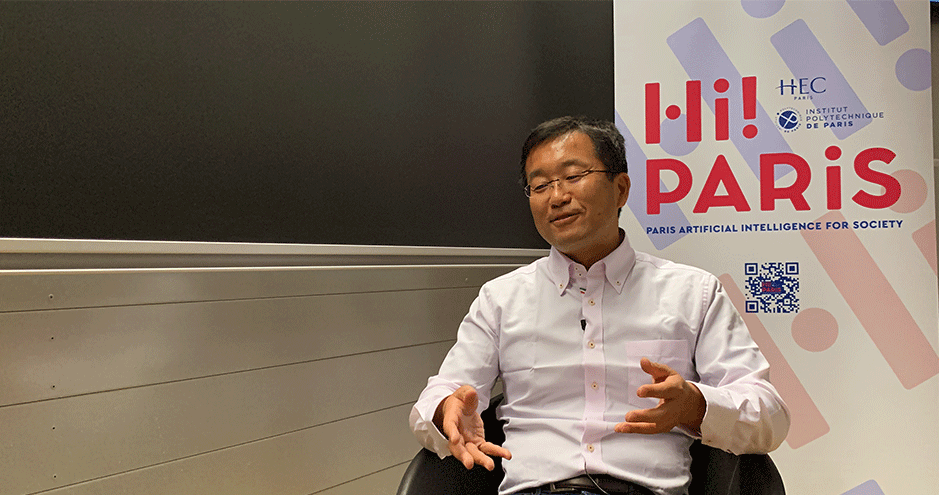
Masashi Sugiyama (©HEC Paris)
“This is my first international trip since the COVID-19 pandemic, and I can’t tell you how delighted I am to be here.” The Director of the RIKEN Center for the Advanced Intelligence Project (AIP) at Professor at the University of Tokyo did not hide his pleasure at being hosted by Hi! PARIS five years after first sharing his research on theories and algorithms of machine learning and data mining. Speaking in front of over 50 fellow-researchers - both in-person in the venue on the Saclay plateau which harbors fellow-hosts IPP (Institut Polytechnique de Paris), and online -, Sugiyama offered a rich overview of his latest scientific advances, many of which have been published in his latest book “Machine Learning from Weak Supervision” (MIT Press).
Whilst his research centers on theoretical explorations of complex questions such as weakly supervised learning, noisy label learning and domain adaptation, Sugiyama has worked hard to deploy and explain machine learning systems in the context of the real world where researchers face a large variety of uncertainty. “At RIKEN AIP, we link our research to Japan’s top priorities and challenges,” he explained. “These are natural disasters our country confronts on a regular basis; elderly healthcare, with its growing senior population; and education.” The 90-minute exchange also explored his Center’s work on ethical, legal and social issues linked to Artificial Intelligence and development of human resources.
Tackling Society’s Challenges through the Fourth Industrial Revolution
The RIKEN AIP project he directs began in 2016 with a focus on deep learning. The exploration of machine learning is a natural progression in Japan, according to the University of Tokyo Professor: “It all began there,” he underlines in a wide-ranging interview after his lecture. “Japan is recognized as a world leader in AI and machine learning, mainly focusing on the role it can play to answer our shrinking workforce and aging population.” Indeed, this fits in seamlessly with Japan’s Society 5.0 program, which tries to resolve the country’s societal challenges through innovations of the fourth industrial revolution.
However, Sugiyama admits there has been a certain unexpected resistance to his work from a population he describes as “still grappling with digitalization” and “resistant to the use of AI to improve their quality of life”. “It’s taken us longer than expected, I must admit. This is one of our main objectives at RIKEN AIP, when looking at long-term future. We have to educate our people, especially the elder, in the ways we have progressed to integrate the concerns of human society. People are still scared of personal data management. So, we are proposing individual-based accessibility control to increase transparency and interaction with the users.” In this context, the academic says his involvement with Hi! PARIS has been most useful. “The multi-disciplinary approach to the Center reflects our own desire to open out our research to society. Bridging the gap between machine and human learning is one of our priorities. And addressing the issue of uncertainty and its manifestation through noise, bias, etc, helps create meaningful dialogues with users.”
The Importance of Reliable Weak Data
The author of the 2015 work “Introduction to Statistical Machine Learning” believes RIKEN AIP’s research should be in harmony with human culture, especially now that scientists can quantify social constraints into forms of maths. “Three years ago, we applied these technological advances in a project with fashion designers. Machine learning output brought in new ideas and set up a platform for a fruitful exchange. This led to the design of some beautiful dresses and a successful fashion show. It underlines the fact we believe machine learning is not a form of self-intelligence but the result of learning and working together.”
In his latest book on weak supervision (op.cit.), Sugiyama delves on the data his research uses. “If you use noisy data, you must be resistant to outlying factors. It is the only way to make it reliable and, as machine learning is deployed in human society, people need reliability. So, much of our work focuses on it being robust.” For the PhD debutant at IPP, Wassim, the Japanese scholar has already left a phenomenal amount of research on which fellow-machine learning researchers can build. The graduate student is working on robustness and fairness and made it a point of attending the conference: “Masashi’s work is inspirational. Just in this presentation and his summarization of where machine learning currently stands, he has given precious pointers for my own research on unlabeled data and noise.” Fellow student Florian concurred, underlining that Sugiyama’s work could help him better research the crucial question of proportion. Whilst IPP Master student Hossein insisted that joint research on annotation could help advance his work.
Meanwhile, Masashi Sugiyama will continue to collaborate with Hi! PARIS as one of 10 leading scientists whose core mission is to provide impartial, credible and independent recommendations on the Center’s academic matters. Hi! PARIS continues its exceptional speakers’ season on October 11 with a presentation by Bob Carpenter of the Flatiron Institute’s Center for Computational Mathematics in New York. Carpenter will share his research on the Pathfinder variational inference algorithm with another on site and Zoom audience.
